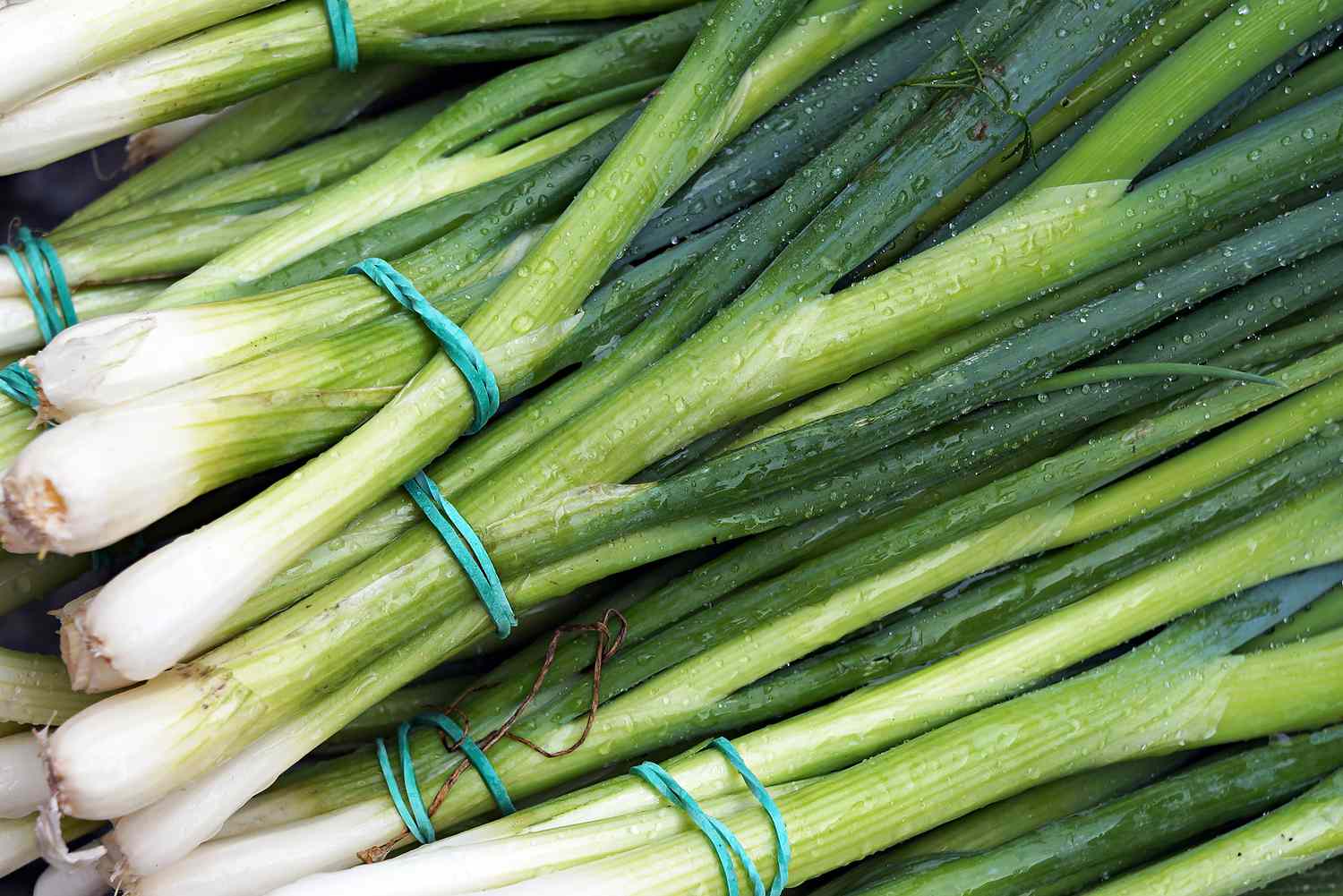
Green onions, also known as scallions or spring onions, are a versatile and flavorful addition to various dishes. Not only do they add a pop of color and a mild onion taste to your meals, but they also bring a range of nutritional benefits to the table. Whether you sprinkle them on salads, use them in stir-fries, or incorporate them into soups and sauces, green onions provide a burst of freshness and nutrition. In this article, we will explore 10 fascinating nutrition facts about green onions that will make you appreciate these vibrant vegetables even more. From their high vitamin and mineral content to their potential health benefits, green onions deserve a prominent spot in your culinary creations. So, let’s dive in and discover what makes these slender green stalks a delightful addition to any dish!
Key Takeaways:
- Green onions are low in calories, high in vitamins, and rich in antioxidants, making them a healthy and flavorful addition to your meals. They can support digestion, boost immunity, and promote heart health.
- With just 10 nutrition facts, you can see how green onions pack a powerful punch of health benefits. From fiber for digestion to vitamins for immunity, these tasty veggies are a must-have in your diet.
Green onions are low in calories
Green onions are a great addition to a calorie-conscious diet as they are low in calories, with just 32 calories per 100 grams.
They are rich in vitamins
Green onions are packed with essential vitamins, including vitamin C, vitamin K, and vitamin A, which contribute to overall health and well-being.
Green onions are a good source of fiber
With their high fiber content, green onions can help promote healthy digestion and prevent digestive issues like constipation.
They contain beneficial antioxidants
Green onions are rich in antioxidants, such as quercetin and sulforaphane, which can help protect the body against harmful free radicals.
Green onions are low in carbohydrates
If you’re following a low-carb diet, green onions are a great choice as they contain only 7 grams of carbohydrates per 100 grams.
They are a good source of minerals
Green onions provide important minerals like potassium, calcium, and magnesium, which are essential for maintaining proper bodily functions.
Green onions have anti-inflammatory properties
The antioxidants present in green onions have anti-inflammatory effects that can help reduce inflammation in the body and alleviate associated symptoms.
They may boost immune function
The high vitamin C content in green onions can contribute to a stronger immune system, helping to ward off infections and illnesses.
Green onions are beneficial for heart health
The sulfur compounds found in green onions may help lower cholesterol levels and reduce the risk of heart disease.
They add flavor and depth to meals
Green onions are not just nutritious; they also enhance the taste of dishes, adding a fresh and slightly pungent flavor.
Adding these 10 nutrition facts for green onions to your knowledge can help you make informed dietary choices and incorporate this versatile vegetable into your meals. Whether you’re looking to boost your immune system, support digestion, or simply add a burst of flavor, green onions are a delicious and nutritious ingredient to include in your diet.
Conclusion
In conclusion, green onions are not only flavorful additions to dishes, but they also pack a nutritional punch. They are low in calories, high in nutrients, and offer numerous health benefits. Green onions are rich in vitamins A, C, and K, as well as folate and fiber. They also contain powerful antioxidants that help fight inflammation and support heart health. Incorporating green onions into your meals can improve digestion, enhance immune function, and promote healthy skin. Whether you use them as a garnish, in salads, or in cooked dishes, green onions are a versatile and nutritious ingredient. So, next time you’re at the grocery store, don’t forget to pick up a bunch of green onions to enhance the flavor and nutrition of your meals.
FAQs
1. Are green onions and scallions the same thing?
Yes, green onions and scallions are essentially the same thing. The terms are often used interchangeably to refer to the young, immature onions that are harvested before the bulb fully develops.
2. Can I eat the whole green onion?
Absolutely! Both the green tops and the white bulb of the green onion are edible. The green tops have a milder flavor compared to the white bulb, but both parts can be used in cooking.
3. How should I store green onions?
The best way to store green onions is by wrapping them in a damp paper towel and placing them in a resealable bag or container. Keep them in the refrigerator, and they should stay fresh for up to a week.
4. Can I freeze green onions?
Yes, you can freeze green onions. Chop them into small pieces and store them in an airtight container or freezer bag. Frozen green onions are best used in cooked dishes rather than for raw applications.
5. How can I incorporate green onions into my meals?
Green onions can be used in a variety of ways. They make a great garnish for soups, stir-fries, and salads. They can also be chopped and added to omelets, pasta dishes, or homemade salsas for an extra burst of flavor.
Was this page helpful?
Our commitment to delivering trustworthy and engaging content is at the heart of what we do. Each fact on our site is contributed by real users like you, bringing a wealth of diverse insights and information. To ensure the highest standards of accuracy and reliability, our dedicated editors meticulously review each submission. This process guarantees that the facts we share are not only fascinating but also credible. Trust in our commitment to quality and authenticity as you explore and learn with us.


